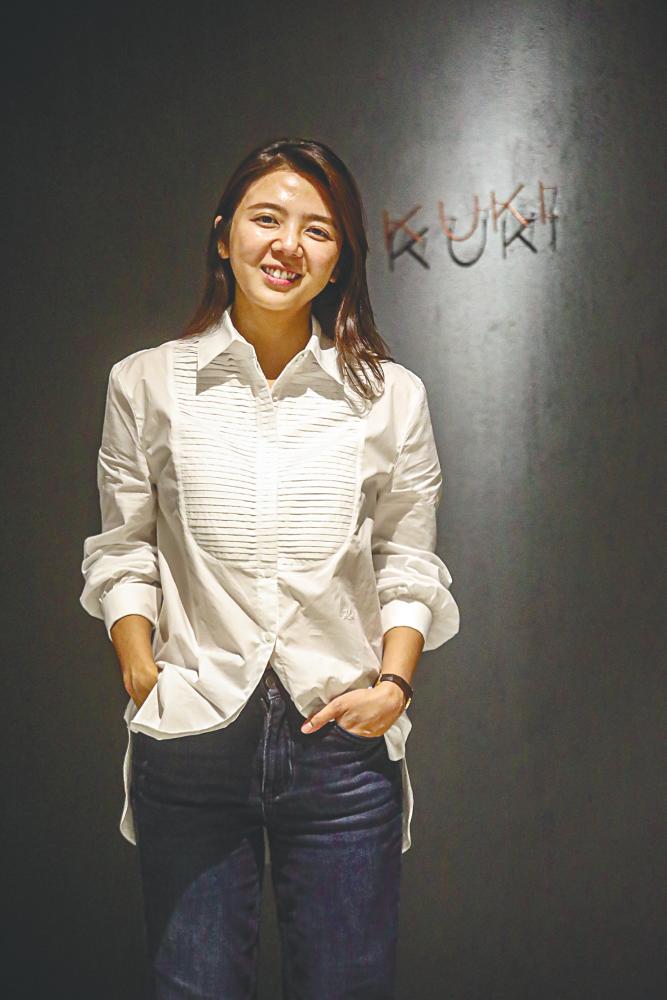While many vegan cafes and restaurants are opening up in Malaysia, it’s not easy to find a Japanese vegan restaurant that not only serves a tempting array of sushi and handmade ramen, but also handmade pasta.
Located on the first floor of Menara KEN, TTDI, Kuki opened to the public on 24 May, a first in the area to offer Japanese vegan food including gluten-free options.
Kuki is the brainchild of Summer Ng, who also owns a casual dining place called Kusa in Bukit Bintang. “We make clean and comfort Japanese cuisine,“ she tells us.
For Summer, the name Kuki has a special meaning. Her first restaurant named Kusa, means grass in English, and Kuki translates to a stem of a growing plant.
“At the restaurant, we apply Japanese principles of focusing on one thing at a time and we focus only on food, particularly the mixing and matching of tastes, food plating, aroma, and dining experience,” said Summer.
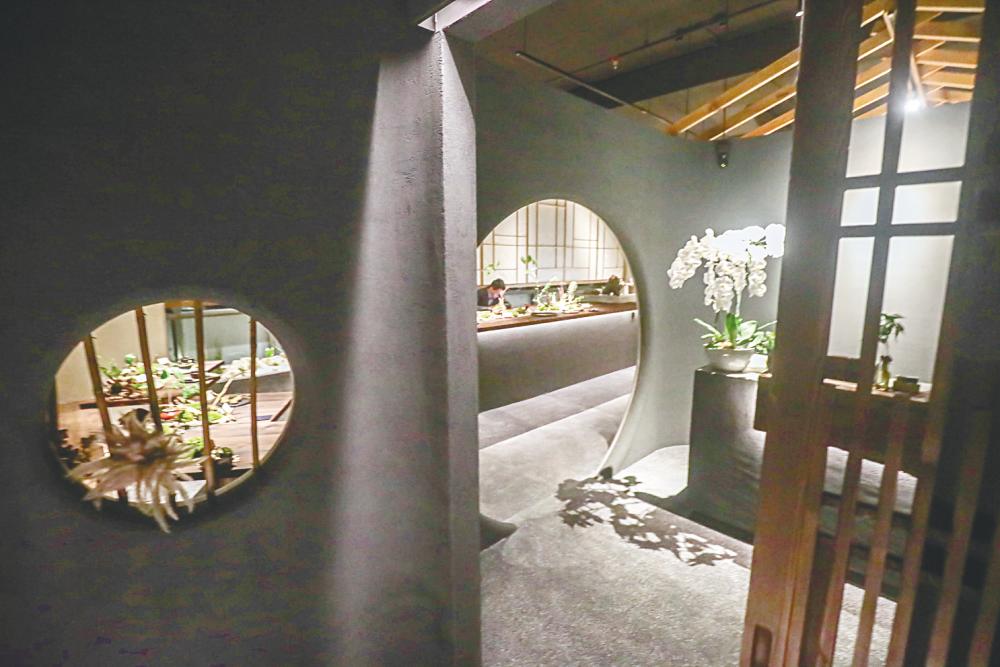
Simple but sophisticated interior
The restaurant opened its doors for a media preview on 27 May, and we got an opportunity to try Summer’s specially curated menu.
The location of the building was easy to find, but one could easily miss the entrance of the restaurant, situated right at the front of the elevator on the first floor.
According to Summer, the pathway to the entrance filled with Japanese bonsai plants, the sounds of water and birds chirping overhead, provides a calming feel as guests enter.
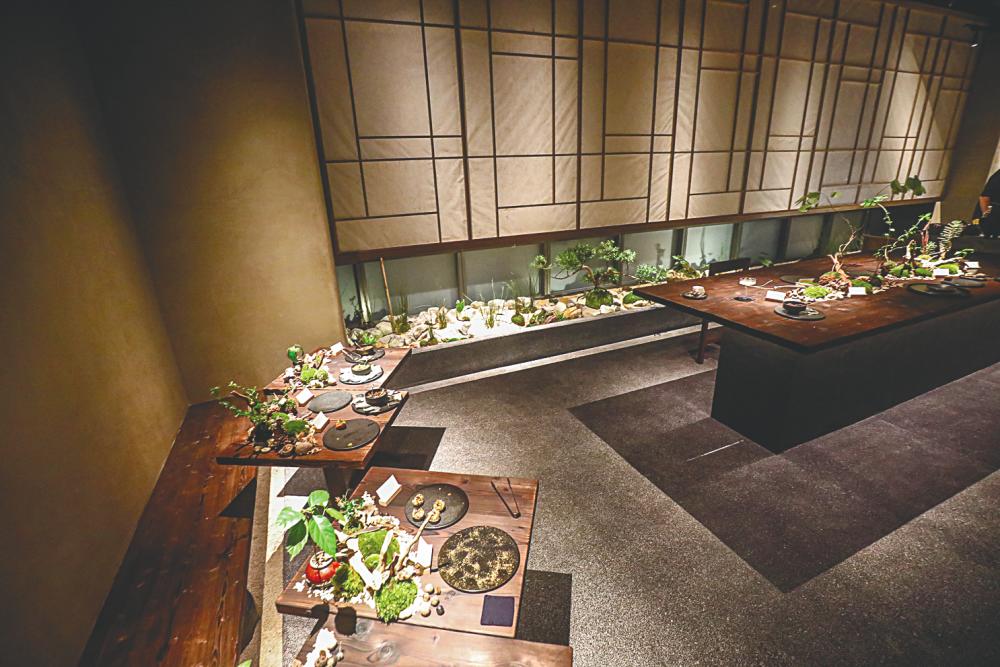
“Our food is colourful and we hope people would focus on the food. I want people to stay in the moment, forget their phones and feel connected to the taste of the food,” said Summer.
It turns out the entire space is designed based on fundamental Japanese interior design principles. The interior design encapsulates the essence of Japanese aesthetics, Wabi Sabi, which is about beauty in simplicity.
Aside from simplicity as the key component, they have incorporated natural wood materials, texture and connection with nature.
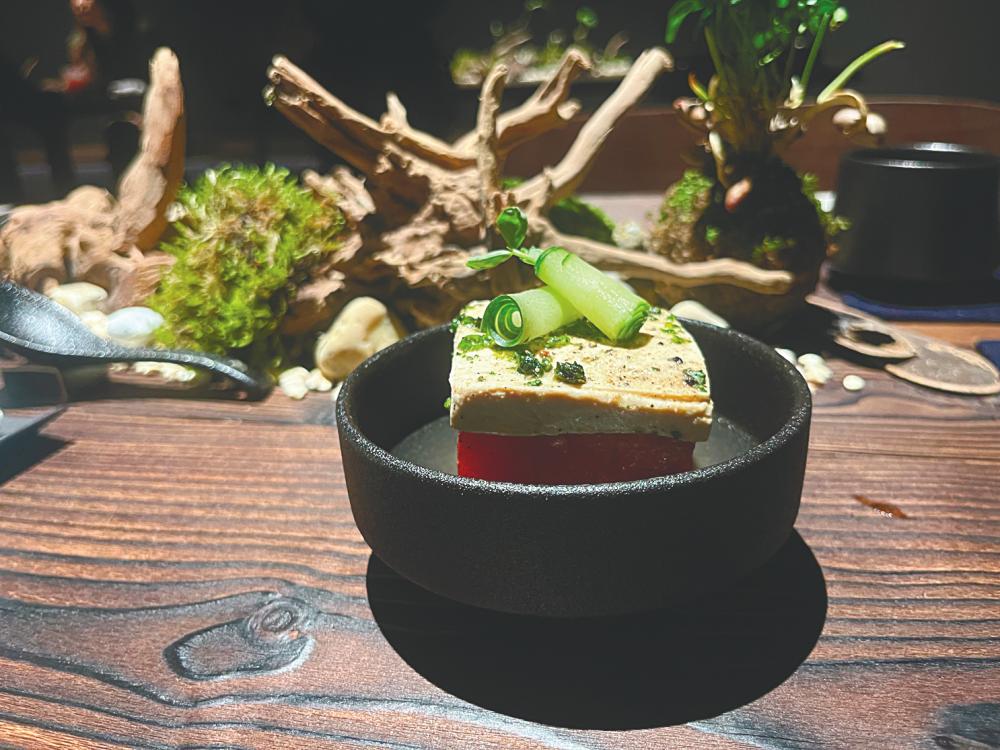
An exploration of tastes and flavours
Kuki’s cuisine combines ingredients that you would not typically expect put together, but the rendered results are exquisite. For example, the Cubed Watermelon Tofu.
Apart from its intriguing name, the taste is refreshing and delightful with a dressing made of basil, mint, and lime. Who would have thought that bringing watermelon and tofu together on one plate would taste so good? Every bite of this dish is a pleasure on the palate!
Then, there is a Japanese Corn Potage Soup with ingredients like corn, soy milk, aonori, onion, and paprika served chilled. It proved to be light and delicious.
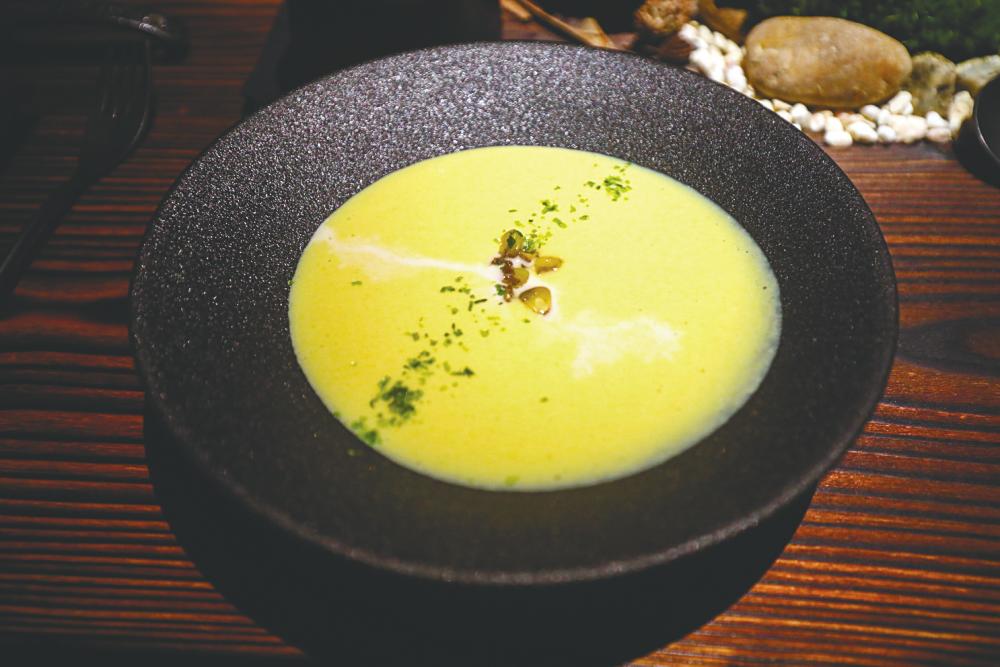
Next, Arancini Onigiri – deep-fried rice balls made with portabello, tofu, and wakame seaweed, were perfectly crispy on the outside and chewy on the inside. Following this was a Goma Miso Ramen: a bowl of freshly handmade ramen that’s smooth and velvety in an aromatic and spicy broth, garnished with baked tomato ginger that provides a bit of a kick. A simple yet luxurious dish.
Finally, the dessert, Fuji Apple Tart, looked appetizing with a pretty and delicate little rose in the middle made with a single layer of a thin slice of apple. The golden brown crust was flaky and the caramelised apple was naturally sweet.
We also got to sample some bite-size appetisers and my favourite was the peculiarly spicy watermelon jam with rice paper cannoli. It was shocking to fin
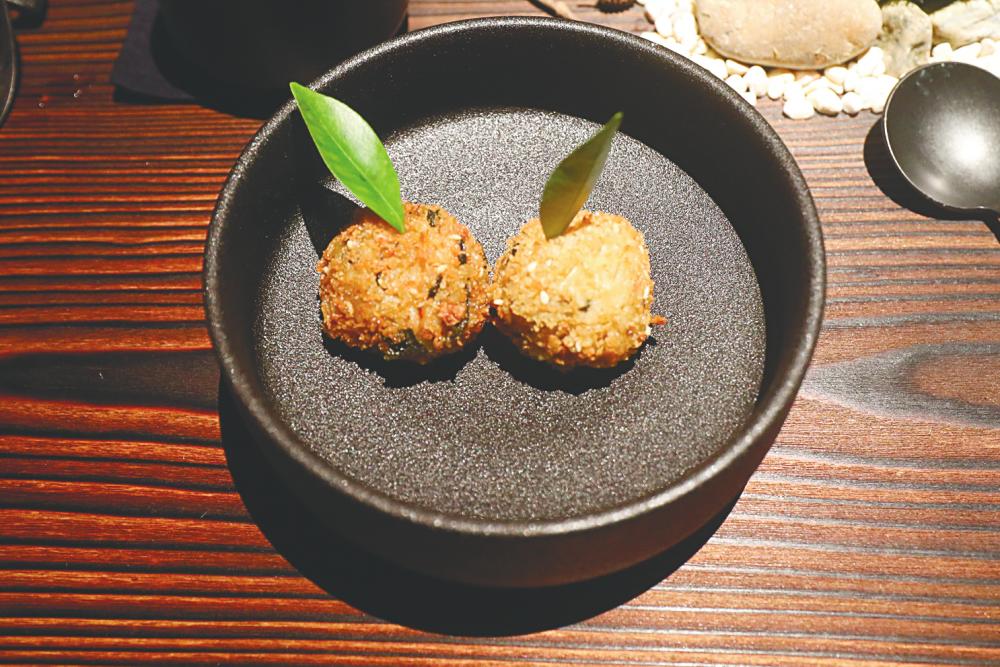
Premium ingredients
Every ingredient that is used is of premium quality, like raw sugar.
“We don’t use white sugar and no seasoning. We extract the taste from the ingredients themselves. The taste comes from the food,” Summer explained.
“We import our ingredients like matcha directly from a farm in Japan. All our noodles are made from scratch, even our pasta. We don’t use processed food.”
As everything is prepared from scratch, the kitchen staff spends a lot of time on preparation alone.
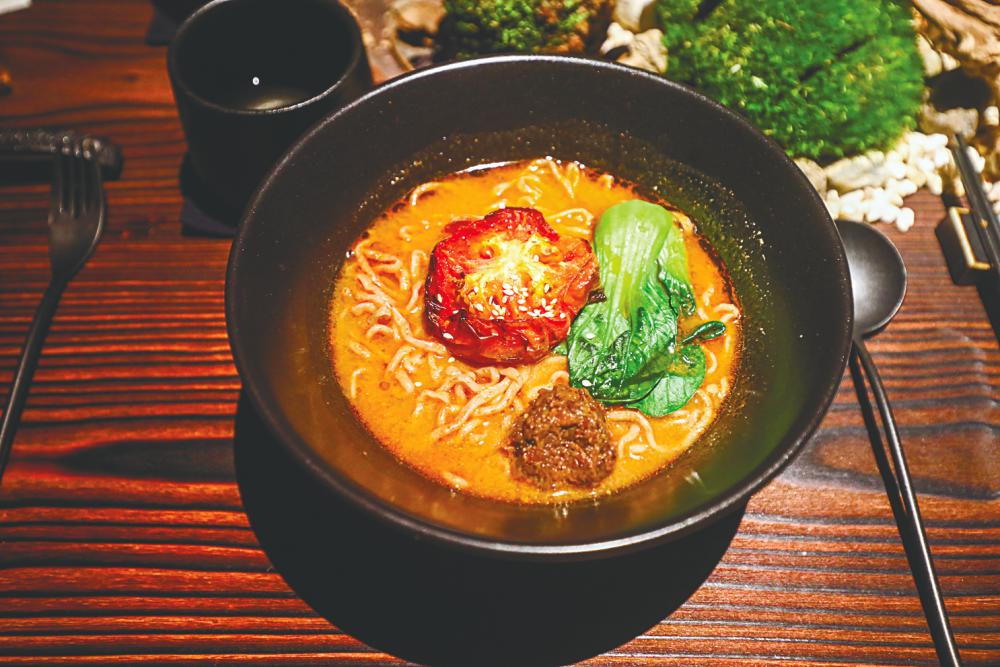
What should you try?
For a first-time customer, Summer suggested trying all of their sushi. “Our sushi is the highlight,” she says. For example, Watermelon Ahi with Pico De Gallo takes days to prepare.
For beverages, the restaurant serves mocktails, cocktails, Kohi or Chai, and cold-pressed juice. Strawberry Mojito, for example, is made with fresh fruits. Another crowd favourite is Turmeric Tonic and non-alcoholic Uji matcha.
One of the prominent guests who attended the event, Berjaya Founder Tan Sri Vincent Tan – a vegetarian himself – shared that the food and the interior decor were very interesting when approached by The Sun.
“Personally, I like this place. The food is unique and delicious. No one has Japanese vegan, as well as, non-dairy, or gluten-free food. Hopefully vegans, vegetarians and non-vegetarians will come and try the food here,” shared Vincent.
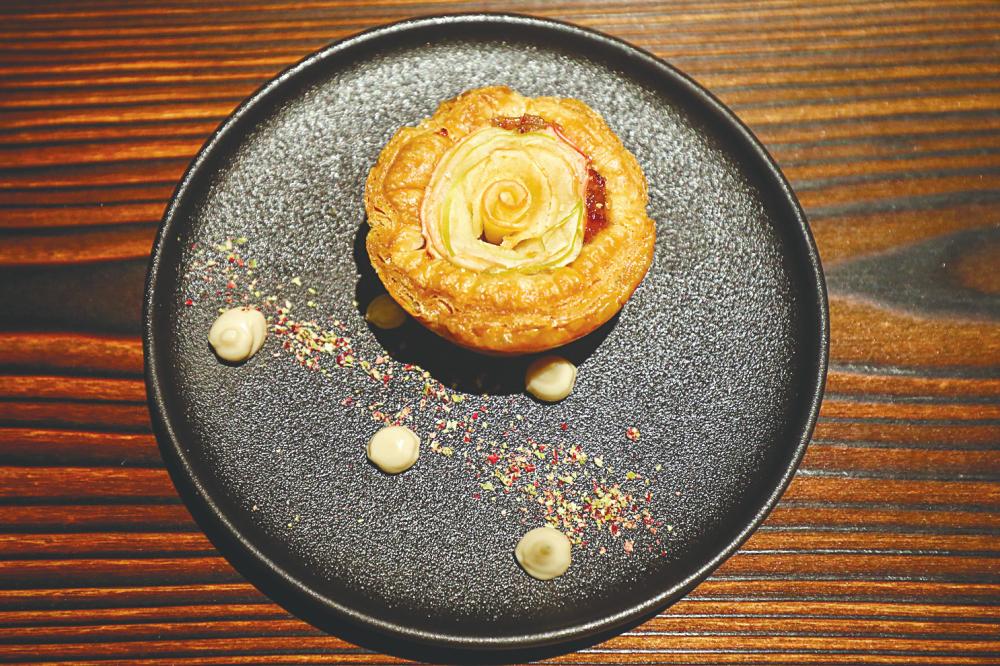
Sustainability and zero waste
Apart from serving phenomenal, the restaurant plays its part to minimize waste and use only natural products.
“We are a zero-waste restaurant, and we believe in sustainability. Everything we use in the restaurant is natural. We don’t serve napkins; instead, we use cold folded towels with essential oils,” says Summer.



